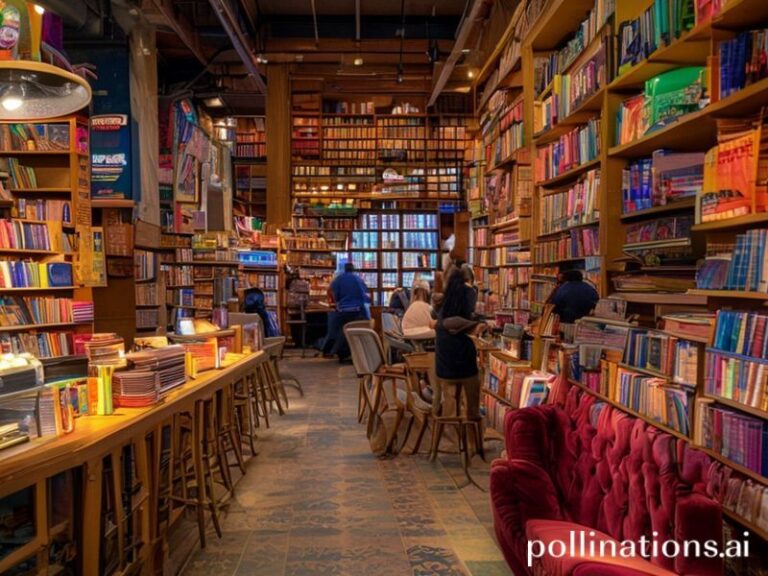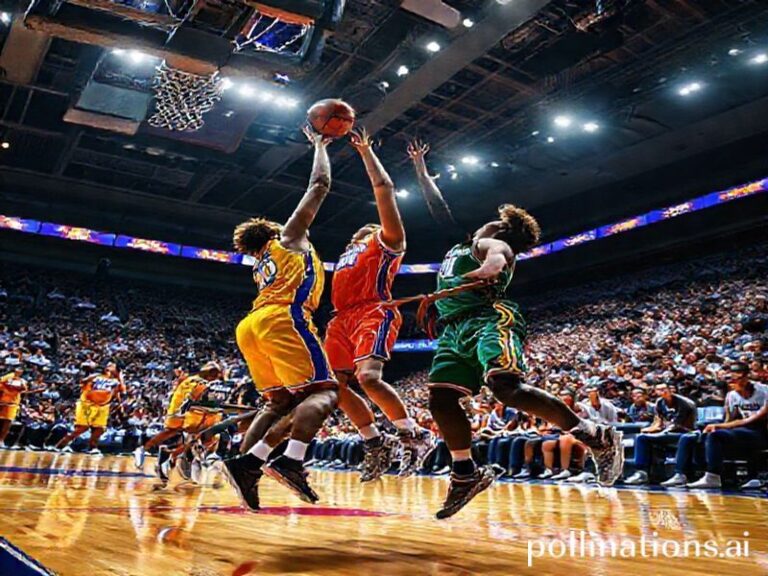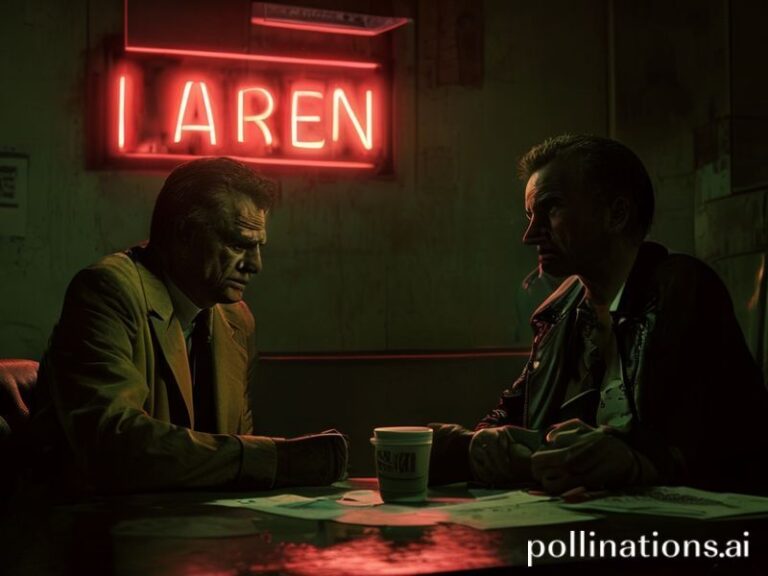Yes, Chef, the World Is on Fire: How Jeremy Allen White Became a Global Metaphor for Millennial Burnout
The Bear in the Global Kitchen: Jeremy Allen White as a Mirror to a World Simmering on the Edge
By Dave’s Locker Foreign Desk (and one very tired espresso machine)
PARIS—At 5:47 p.m. local time, the TikTok algorithm in 42 countries simultaneously shoved a sweaty, inked Chicago chef into every vertical screen from Lagos to Lima. The clip: Jeremy Allen White, playing Carmy Berzatto, screaming about “mise en place” while a grease fire licks the ceiling. The caption, auto-translated into 19 languages: “Me trying to keep my life together.” The implication: the planet now bonds over collective panic attacks garnished with micro-greens.
White’s face—half cherub, half nicotine stain—has become a universal shorthand for millennial burnout. In Seoul subway cars, commuters compare dark circles; in São Paulo coworking spaces, digital nomads use “Yes, Chef” as a greeting, a prayer, and an apology. The United Nations has yet to release a report, but several interns swear they heard Deputy-Secretary Amina Mohammed mutter “Behind!” when someone dropped a briefing folder.
The Global Anxiety Index, a metric invented last week by a think tank desperate for relevance, charts a 17 % spike in doomscrolling every time a new season of The Bear drops. Coincidence? Possibly. But when the International Monetary Fund cites “Carmy risk” as a factor in projected euro-zone labor shortages, it’s time to admit we’re all in the same overheated galley.
White’s own biography—child actor turned reluctant sex symbol turned reluctant global metaphor—reads like a satire no editor would buy. Born in Brooklyn, raised on film sets, he learned early that performance was survival. That skill translates: whether you’re hustling in a Copenhagen cloud kitchen or hawking NFTs in Nairobi, the need to look competent while screaming internally is the lingua franca of 2024.
Europeans, ever eager to intellectualize pop culture, have scheduled conferences. In March, the Sorbonne hosts “Culinary Masculinity and Late-Stage Capitalism,” featuring a roundtable on why Carmy’s forearm veins perform more emotional labor than most governments. Tickets sold out in 11 minutes, mostly to Americans on study-abroad visas pretending to read Sartre.
Meanwhile, global supply chains have quietly weaponized White’s image. A factory in Guangzhou stamps his likeness on 300,000 reusable bento boxes destined for the EU’s new anti-plastic initiative. Children in Jakarta now trade stickers of a fictional chef whose restaurant exists only on a soundstage next to a Costco. Late capitalism, ever the resourceful line cook, has reduced existential dread to a merchandising opportunity—collect all five stages of grief, only $9.99.
Diplomatic cables, leaked by an underpaid sous-chef at the U.S. embassy in Rome, reveal that envoys use Bear episodes as icebreakers during tense trade talks. “We skip the one with the Christmas flashback,” an attaché noted. “Too many unresolved childhood traumas at the table already.” The Vatican has reportedly formed a focus group to study whether the show’s depiction of confession-by-trauma-omelet counts as pastoral care.
And yet, for all the ironic detachment, White’s appeal is brutally sincere. He embodies the moment when ambition meets entropy, when the soufflé of self-worth collapses because someone left the walk-in door open. From Kyiv bomb shelters to Kabul food-delivery mopeds, humans recognize the face of someone trying to plate dignity on a cracked dish. The joke, dark as demi-glace, is that the harder we try to keep the kitchen running, the more the world sets itself on fire—a feedback loop seasoned with artisanal despair.
As COP29 delegates argue over methane emissions, perhaps the most honest summit side-event would be a communal screening of The Bear with open-bar antacids. Because if we can laugh at Carmy’s Sisyphean service—knowing full well tomorrow’s tickets are already printed—maybe we’ll admit the real order is for humility, extra crispy.
Jeremy Allen White never asked to be a geopolitical Rorschach test. But in an era where every culture war is fought over the last slice of metaphorical pie, he’s the reluctant maître d’ seating us at the banquet of our own contradictions. Tip generously; the apocalypse is watching.







